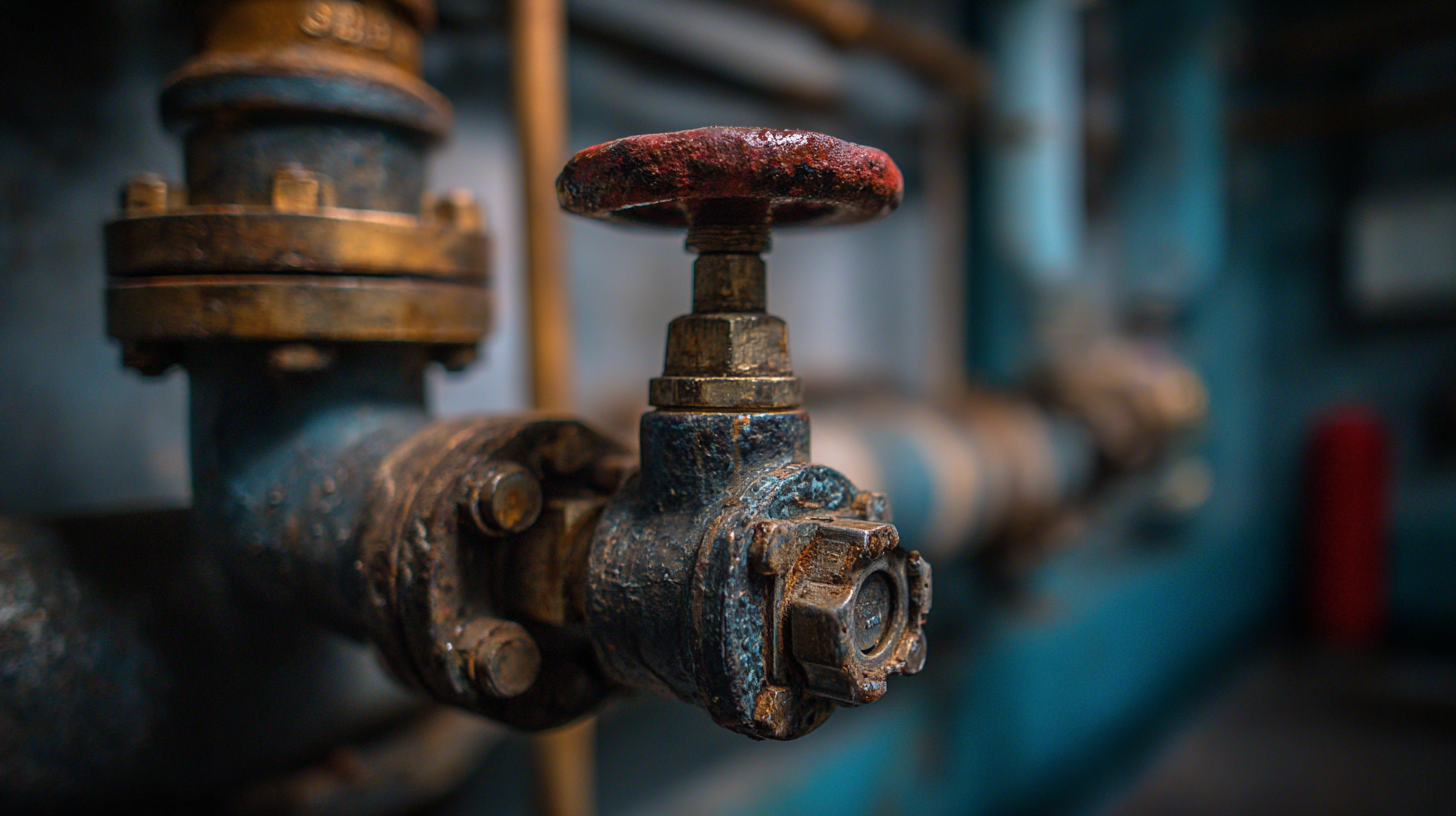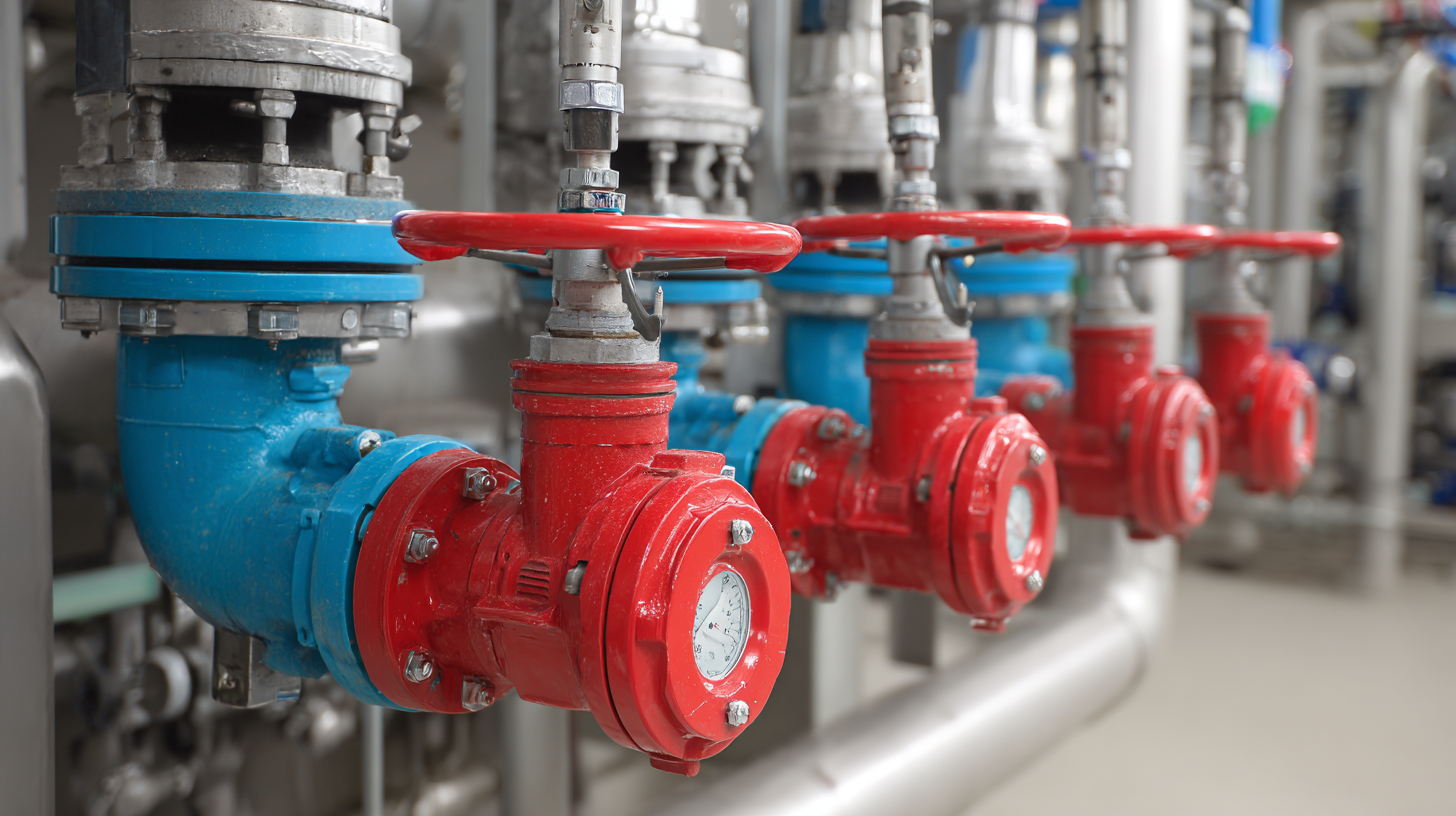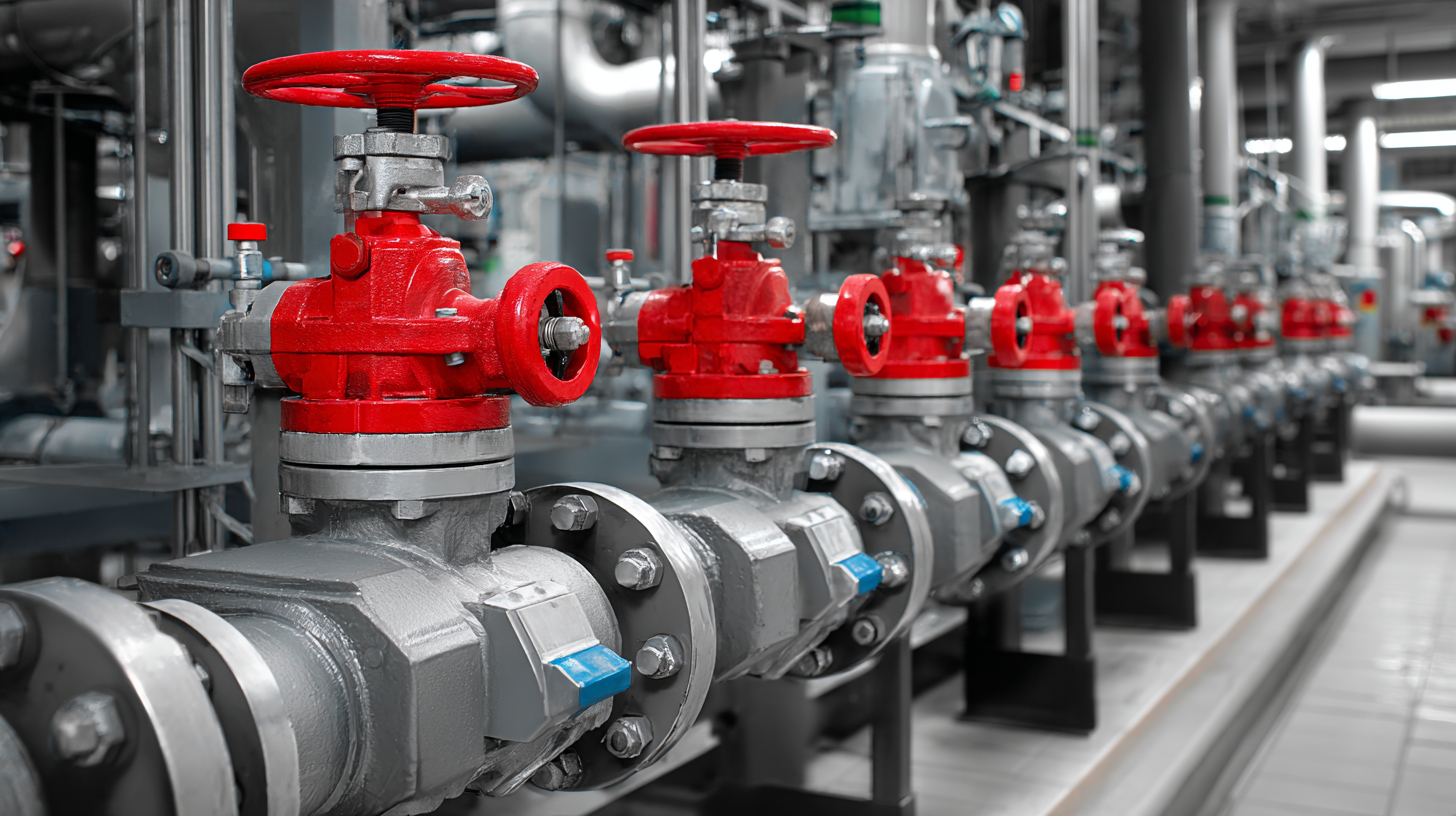How to Choose the Right Boiler Valve for Your System Needs
Choosing the right boiler valve is crucial for ensuring optimal performance and safety in heating systems. According to the Global Market Insights report, the boiler valve market is projected to exceed $3 billion by 2026, driven by rising demand for energy-efficient heating solutions. Selecting an appropriate boiler valve requires consideration of various factors, including material compatibility, pressure ratings, and operational efficiency. The right valve not only facilitates reliable isolation and flow control but also enhances the overall longevity of the system. Data from the American Society of Mechanical Engineers indicates that improper valve selection can lead to significant efficiency losses, making it imperative for professionals to understand their system needs thoroughly. This guide aims to provide insights into evaluating and selecting the perfect boiler valve to meet specific requirements, ensuring both performance and safety in heating applications.

Understanding Different Types of Boiler Valves and Their Applications
 When selecting the right boiler valve for your system needs, it's crucial to understand the various types of valves available and their specific applications. For instance, gate valves are typically used for on/off control in high-pressure systems, while globe valves offer better effectiveness for throttling flow. Check valves, which prevent backflow and maintain proper direction in the system, are also essential for ensuring safety and efficiency. In addition, advancements in materials, such as the increasing use of plastic piping, indicate a shift in the industry that can influence valve choices based on specific installation requirements.
When selecting the right boiler valve for your system needs, it's crucial to understand the various types of valves available and their specific applications. For instance, gate valves are typically used for on/off control in high-pressure systems, while globe valves offer better effectiveness for throttling flow. Check valves, which prevent backflow and maintain proper direction in the system, are also essential for ensuring safety and efficiency. In addition, advancements in materials, such as the increasing use of plastic piping, indicate a shift in the industry that can influence valve choices based on specific installation requirements.
The importance of proper valve selection extends beyond functionality; it is also related to safety and regulation compliance. A recent industry report highlighted that nearly 90% of new installations are utilizing some form of plastic piping, which underscores the need for compatible valve technologies that can maintain system integrity. Proper sizing and installation of safety valves are essential to adhere to industry standards, ensuring reliable operation in steam systems. Moreover, understanding the roles of heating controls in regulating temperature and system performance can further guide the choice of boiler valves, ultimately leading to improved efficiency and effectiveness in heating applications.
Key Factors to Consider When Selecting a Boiler Valve
When selecting a boiler valve, it’s crucial to consider several key factors to ensure optimal performance and safety. Firstly, understanding the valve type is essential. According to a report by the American Society of Mechanical Engineers (ASME), the most commonly used valves in boiler systems are globe, gate, and ball valves. Each type serves different functions; globe valves are ideal for regulating flow, while gate valves are suited for on/off control. The choice of valve should align with the specific requirements of your system to enhance efficiency and prevent operational issues.
Another significant factor is the valve material. The selection of materials should be based on the operating temperature and pressure of the system. A study published in the Journal of Pressure Vessel Technology highlighted that brass and stainless steel valves provide durability against corrosion and high-pressure environments. Furthermore, ensuring compatibility between the valve and other system components is vital to avoid leaks and failures. Regular maintenance and inspections can also prolong valve life, as indicated by the National Board of Boiler and Pressure Vessel Inspectors, which recommends checking valves annually for signs of wear or damage.
Boiler Valve Selection Factors
This chart illustrates the key factors to consider when selecting a boiler valve, with each factor assigned an importance level from 1 to 10. The most critical factors are material and pressure rating, indicating their significance in ensuring optimal boiler performance.
Evaluating Material Compatibility for Boiler Valve Durability
When selecting the appropriate boiler valve, evaluating material compatibility is critical for ensuring the durability and performance of your system. Boiler valves are exposed to high pressures and temperatures, as well as potentially corrosive substances, making the choice of valve material essential. According to a report by the American Society of Mechanical Engineers (ASME), incorrect material selection can lead to significant failures, such as leaks and catastrophic failures, which incur costly downtime and repairs.
For example, stainless steel valves are commonly used in applications requiring resistance to oxidation and corrosion, particularly where steam and hot liquids are handled. The Corrosion Engineering Report estimates that stainless steel valves can provide up to 15 years of reliable service under optimal conditions, compared to only 5-7 years for valves made from inferior materials. Additionally, the compatibility of the valve material with the fluid medium must be assessed; for instance, brass valves might not be suitable for highly corrosive chemicals, which could lead to premature degradation.
Furthermore, the operating environment should also dictate material choice. High-temperature applications may require valves made from nickel-based alloys, known for their superior mechanical properties under heat. A study by the National Board of Boiler and Pressure Vessel Inspectors highlights that utilizing the correct materials not only increases operational safety but also enhances the overall lifespan of boiler systems, potentially saving facilities up to 30% in maintenance costs over time.
Sizing and Pressure Requirements for Effective Boiler Valve Performance
When selecting the right boiler valve, understanding sizing and pressure requirements is crucial for optimal performance. A valve that is too small may restrict flow, resulting in inadequate system pressure and potential overheating. Conversely, an oversized valve can lead to inefficiencies and increased wear on system components. Therefore, it's essential to accurately assess the specific needs of your boiler system, including the expected flow rates and pressure levels.
Tips: Always refer to manufacturer specifications when determining the appropriate valve size. Additionally, consider the operating conditions of your boiler, such as temperature and pressure fluctuations, as these factors significantly impact valve performance.
Moreover, as the safety valve market is expected to grow significantly over the next decade, it's vital to invest in high-quality valves that can withstand fluctuating pressures. Incorporating advanced safety features can help prevent costly downtime and maintain operational efficiency within your system. Understanding your valve requirements today can lead to better energy efficiency and cost savings in the long run.
Maintenance Tips for Prolonging the Lifespan of Your Boiler Valve
Proper maintenance of your boiler valve is essential for ensuring its longevity and efficient operation. According to a study by the American Society of Mechanical Engineers (ASME), regular maintenance can extend the lifespan of critical components by up to 50%. A well-maintained boiler valve not only minimizes the risk of leaks but also helps in saving energy, as it allows the system to function more efficiently.
To prolong the lifespan of your boiler valve, here are a couple of tips. First, regularly inspect the valve for wear and tear. Look out for any signs of corrosion, rust, or leakage, as these can indicate a failing valve. ASME reports that almost 20% of system failures are attributed to neglected valve maintenance. Second, consider lubricating the valve periodically with the appropriate lubricant to ensure smooth operation and prevent sticking. A simple lubrication task can be performed every six months to keep things running smoothly.
Finally, always keep records of maintenance activities. Data from the National Board of Boiler and Pressure Vessel Inspectors highlight that systems with a meticulous maintenance log see a decrease in operational downtime by 25%. Keeping track of inspections and any work done can provide valuable insights into the health of your boiler valve and prompt necessary actions before any serious issues arise.
How to Choose the Right Boiler Valve for Your System Needs - Maintenance Tips for Prolonging the Lifespan of Your Boiler Valve
| Valve Type |
Material |
Temperature Rating |
Pressure Rating |
Maintenance Frequency |
| Ball Valve |
Brass |
-20 to 120°C |
16 Bar |
Annually |
| Gate Valve |
Stainless Steel |
-40 to 200°C |
20 Bar |
Every 6 months |
| Check Valve |
Forged Steel |
-10 to 150°C |
25 Bar |
Quarterly |
| Globe Valve |
PVC |
0 to 60°C |
10 Bar |
Biannually |


 When selecting the right boiler valve for your system needs, it's crucial to understand the various types of valves available and their specific applications. For instance, gate valves are typically used for on/off control in high-pressure systems, while globe valves offer better effectiveness for throttling flow. Check valves, which prevent backflow and maintain proper direction in the system, are also essential for ensuring safety and efficiency. In addition, advancements in materials, such as the increasing use of plastic piping, indicate a shift in the industry that can influence valve choices based on specific installation requirements.
When selecting the right boiler valve for your system needs, it's crucial to understand the various types of valves available and their specific applications. For instance, gate valves are typically used for on/off control in high-pressure systems, while globe valves offer better effectiveness for throttling flow. Check valves, which prevent backflow and maintain proper direction in the system, are also essential for ensuring safety and efficiency. In addition, advancements in materials, such as the increasing use of plastic piping, indicate a shift in the industry that can influence valve choices based on specific installation requirements.
